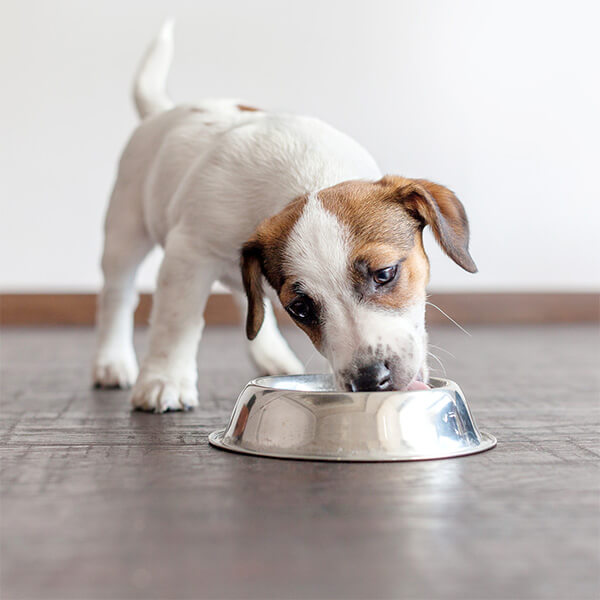Food For Your New Puppy
6/11/15

Last Updated on
The most important time to feed great food is when your puppy is young. Great nutrition helps build a solid foundation, upon which your puppy can live long and prosper.
Puppies, as a general rule, require high protein, balanced fat, mineral-rich diets (giant breed dog owners should discuss food with their vets and breeders). Not all raw diets are high protein: some popular, lower-cost raw diets are mostly fat, and probably should not be fed to puppies.
The actual fat content of a dog food is not always shown on the label because fat is listed as a minimum. A label can read “6% fat (minimum)” and actually be 18% fat! The best way to tell how much fat is in a raw diet is to go to the company’s website and find out the amount of calories per ounce in the product. Lean, high protein foods appropriate for puppies should have 25 to 40 kcal/ ounce, while the fatty foods, which should probably not be fed to puppies (or any dog, in my opinion), have 50 to 65 kcal per ounce. (Fat has more than twice the calories per ounce than protein).
It’s also important to feed puppies a variety of healthy foods, rotating the different meat and fat sources, so they get accustomed to eating almost anything. Many puppies brought up on just one food have difficulty adjusting to variety of foods later in life. Variety is natural and healthy. Just as you would not want your child to eat just one food all the time, you should not feed your puppy one food all the time.



